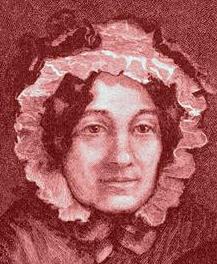Hello, all.
In their masterful Jack The Ripper Companion, Stewart Evans and Ketih Skinner relate a (rather lengthy) story told by Detective Inspector Harry Cox to Thomson's Weekly News regarding a suspect he'd been instructed to shadow by his superiors at the City Police. The entry is much too lengthy to post here in full, and most of you have likely read it already, but the descriptive parts regarding the suspect are detailed as follows:
... The man we suspected was about five feet six inches in height, with short, black, curly hair, and he had a habit of taking late walks abroad. He occupied several shops in the East End, but from time to time he became insane, and was forced to spend a portion of his time in an asylum in Surrey. While the Whitechapel murders were being perpetrated his place of business was in a certain street, and after the last murder I was on duty in this street for nearly three months.
Precious little information is given by Cox as to the exact location of the suspect's shop, except that it was apparently in walking distance of Leman Street - meaning, very probably, in my view, that the suspect's shop was located on Commercial Street. The "asylum in Surrey" mentioned was almost assuredly Holloway. Other than that, I've not the slightest where to begin in tracing this man.
In their masterful Jack The Ripper Companion, Stewart Evans and Ketih Skinner relate a (rather lengthy) story told by Detective Inspector Harry Cox to Thomson's Weekly News regarding a suspect he'd been instructed to shadow by his superiors at the City Police. The entry is much too lengthy to post here in full, and most of you have likely read it already, but the descriptive parts regarding the suspect are detailed as follows:
... The man we suspected was about five feet six inches in height, with short, black, curly hair, and he had a habit of taking late walks abroad. He occupied several shops in the East End, but from time to time he became insane, and was forced to spend a portion of his time in an asylum in Surrey. While the Whitechapel murders were being perpetrated his place of business was in a certain street, and after the last murder I was on duty in this street for nearly three months.
Precious little information is given by Cox as to the exact location of the suspect's shop, except that it was apparently in walking distance of Leman Street - meaning, very probably, in my view, that the suspect's shop was located on Commercial Street. The "asylum in Surrey" mentioned was almost assuredly Holloway. Other than that, I've not the slightest where to begin in tracing this man.



Comment